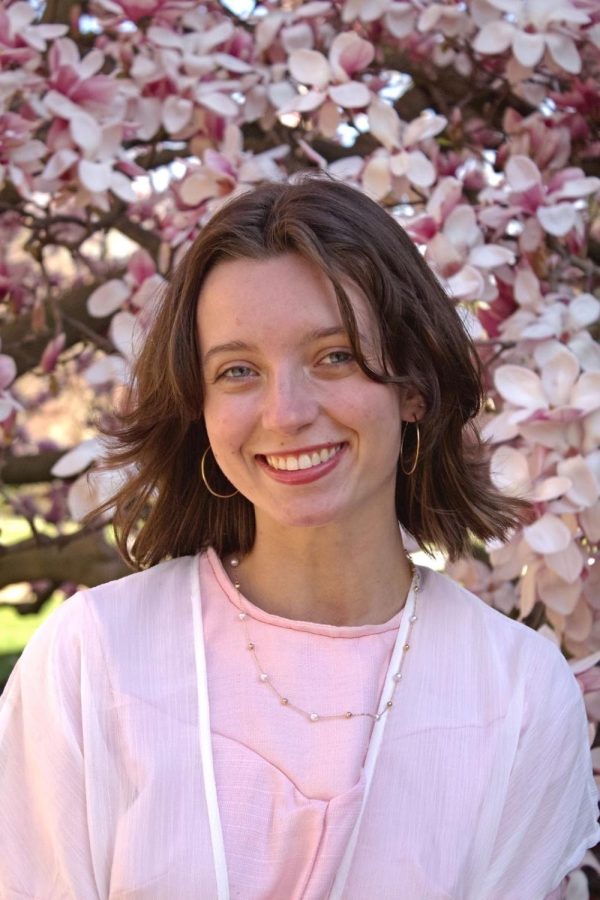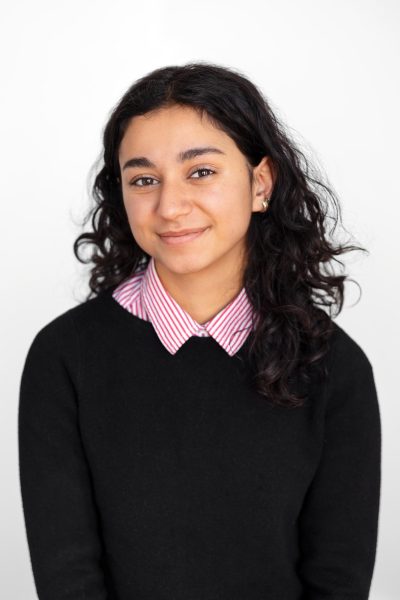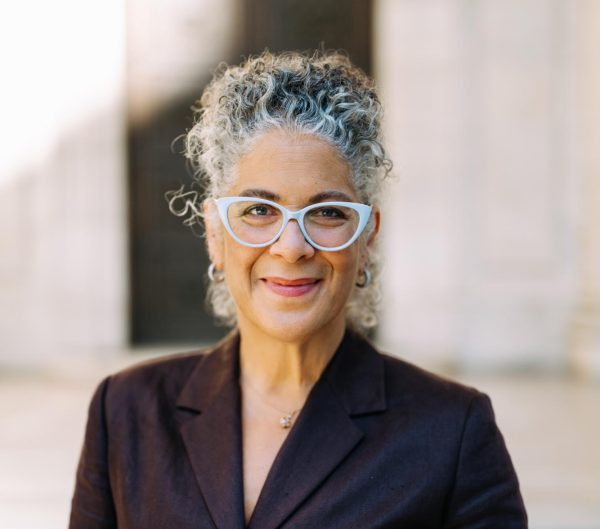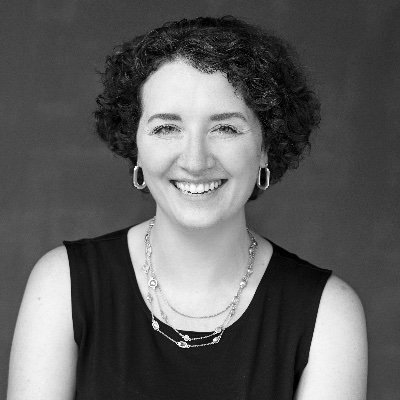Addie Breen: Production editor and East Asian Studies Major
Addie Breen.
Addie Breen is a fourth-year who worked as a Review Production editor for both semesters of their last year at Oberlin. In that time, Addie carved out their niche as the editor who will rephrase a clunky sentence with a subtlety and elegance that’ll leave you wondering how the solution eluded you for so long. Addie is graduating with an East Asian Studies major with a concentration in Chinese Language and minors in Literary Translation and Religion, and plans to continue working as a copy editor after graduation. However, before they launch their professional career, Addie is taking their experience as a head cook of Keep Co-op to Alaska, where they will be working in the kitchen of Sitka Fine Arts Camp over the summer.
This interview has been edited for length and clarity.
You started working at the Review the first semester of your fourth year. What initially prompted you to apply, and how has the job shaped your last year of college?
I was hoping to get a job this year to get some of my own income, and then I saw the Campus Digest announcement about the Review hiring. My mom is a copy editor, and my dad is a writer — I’m a bit of an editing nepo baby, if you will — and I thought it’ll be fun to try it out, because copy editing is something that I’ve grown up around and am pretty familiar with, without having done it as a job before. And so I thought, “Hey, why not?”
I’ve definitely gotten a wider view of campus culture, and what’s going on in the Oberlin community as well. As a Production editor, you get to read all the stories from all the different sections, so getting a really broad view of everything was really cool. Also, I think working at the Review improved my work ethic, because you’re forced to get a certain amount of things done in a certain period of time. There were, of course, some nights in Production where I distracted myself and my coworkers by, uh, discussing the pieces that we were editing.
Critically discussing.
Critically discussing the pieces that we were editing. But I think, generally, it was a good break from schoolwork while still involving intellectual brainwork.
You mentioned your mom is a copy editor, but you didn’t want to be one. Explain your reluctance to go down her path — did it feel like the equivalent of inheriting the family general store?
I think I just felt like I shouldn’t just do what my mom does; I should forge my own path and find something else. But it’s turned out to be something that my mom and I can really bond over. Like when she visited last semester, I was showing her the edits I made on a piece that really needed to be beaten into shape. And we were both laughing over, you know, silly stylistic or syntax things that most other people wouldn’t notice. And it’s kind of cool to connect with someone else with a copy editor’s brain who notices that kind of thing, and to become someone with a copy editor’s brain.
I wonder if you have any childhood memories associated with copy editing.
Yeah, actually I do. When I was in kindergarten, our teacher told us, “Remember that ‘a lot’ is two words, and not one — and go home and tell your parents, because they might not know.” And so I went home and told my mom, and I was angry that she knew already, when knowing that was literally her job. I was frustrated that I couldn’t be smarter than my mom when I was a child.
But also, I remember looking over her shoulder while she was editing, and if she was looking at a specific instance of a stylistic inconsistency, she would show me what that meant, and point out the patterns to me in the wording that she was looking out for. And then when I got older, every so often, if I stepped into her home office and she was working on something, we would talk about a specific edit that she was making, and I would give my suggestions — and sometimes she would take them. It’s a kind of beautiful thing that I can now take that and bring it into my own life.
Would your parents edit your high school essays?
My mom never really butted in and was like, “Show me your essay so I can edit it.” But there have definitely been many circumstances where I would show my parents a piece of writing that I’d done for school, just to show them, and I could tell when my mom was reading it, she was copy editing it in her head. And I was like, “Mom, I see what you’re doing. That’s not what I’m looking for right now.” And she’s like, “I’m sorry, I can’t turn it off.”
What made you realize you actually like being a copy editor?
It was a gradual realization that this was something that I both was good at and really enjoyed doing. I think I’ve always been a good editor, but I haven’t had an editing job before, so I didn’t consider it as a career path. I was thinking about being a translator for a while, and being an editor is not too far away from that. But I realized that my Mandarin Chinese skills would have to improve exponentially in order to reach a place where I could feasibly do translation as a career. So editing, I think, is a way for me to still work with the intricacies of language, but in a language that I’m already fluent in.
Have you noticed overlaps in the skills you use as a translator and as a copy editor?
Yeah, I definitely see similarities between translation and editing. A lot of translation is combing through specific word choices. Also, you have to pay a lot of attention to sentence structure because often, the sentence structure of the language you’re translating from won’t completely match onto the language you’re translating into. And so, you have to figure out how to make things make sense in the language you’re translating into, while also choosing how much of the original language you want to carry into your translation.
As a copy editor, sometimes you’ll get handed an article that makes certain claims that it can’t necessarily back up, and so you have to figure out how to reword some of the author’s writing so that we don’t get sued, while also doing justice to the author’s argument.
What was your favorite moment in the Production room this year?
Hands down, “pleasurable jolt of inundation.” For our readers, I’m gonna give a little context — that was a line in one of the pieces that I looked at, and I thought, one, “This is the funniest thing I’ve ever seen,” and two, “We cannot publish this.” Production has a good amount of inside jokes of really strange phrasing that has come up in some of our pieces, that we have absolutely adored, but had to say goodbye to.
Something else that I enjoy is — well, I won’t say it’s hazing, because hazing is not condoned in the state of Ohio. But, I would say it is an initiation ritual for Production editors to have to edit a piece either about the Gibson’s Bakery litigation or Professor Mahallati — specifically, to have to do a fact read on a Gibson’s or a Mahallati piece. I had to do that, our new Production editors had to do that. I believe it builds character. As soon as you announce to the Production room that you’re doing a fact read on one of those two topics, everyone will just give a groan of sympathy, because they’ve also had to do that. I think the camaraderie around doing difficult fact reads is what kept me going when I was stuck having to comb through pages and pages of legal documents, or City Council notes, or the directives of what birth control Catholic hospitals can provide. Fact reads are not my favorite thing in the entire world, but because they were nobody’s favorite thing, it was always a very supportive environment when someone had to do a tough fact read.
How has working at the Review clarified your future plans?
I really would like to pursue something in the editing field. Something that’s frustrating is that so many job postings are looking for a combined writer/editor, and those are two completely different skills. I don’t want to do the writing part — I just want to take apart other people’s writing, because it brings me pleasure and joy.
It’s been really nice working at the Review and having my fellow Production editors affirm my editing skill. I do take it as a compliment when you have handed me the tough pieces to edit and fact-check, as much as it pained me to do them, because that meant that you trusted my judgment, and you trusted that I would be thorough and committed to doing a good job. I think getting that affirmation of my editing work ethic was really positive in helping me picture a future of doing this for a career.
My last question is, how did you make the crossword? I have no idea how you made the crossword.
See, I also don’t know how to make a crossword. I know how to make other people’s crossword clues better. I took that upon myself because I had clever little quips to share with the world at large, and needed to put them into action. But, yeah, making a crossword, it’s a mental puzzle to just arrange the words together so they’ll fit. You have to rotate the words in your mind — your little crossword mind palace.










